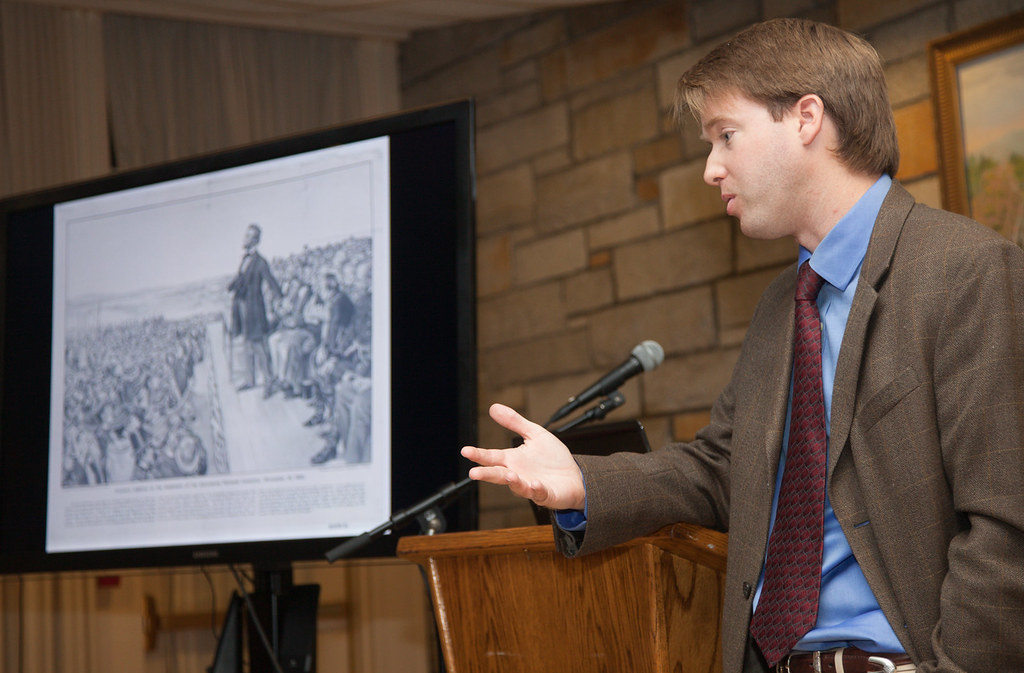NEXT MEETING: Thurs, April 10, 7:00pm at Barlow Community Center. Award-winning Hudson Author Joyce Dyer, brings new perspective to life of John Brown.
November Meeting Subject: Role of Ohio’s Black Abolitionists in Fight to End Slavery
Dr. Erik Chaput, a member of the History and Social Studies Department at Western Reserve Academy, will be the speaker at the November 10 meeting of Hudson Heritage Association. Dr. Chaput’s talk will focus on the often-neglected Black abolitionist conventions in the decades before the Civil War. He will highlight the careers of Ohio abolitionists H. Ford Douglas, Charles Henry Langston, John Mercer Langston and William Day, and the impact they had on the development of a constitutional discourse relating to civil and political rights. The meeting, to be held at the Barlow Community Center, begins at 7:30 p.m.
Dr. Chaput received his doctorate in early American history from the Maxwell School of Citizenship and Public Affairs at Syracuse University, and also holds an academic appointment in the School of Continuing Education at Providence College. He is the author of The People’s Martyr: Thomas Wilson Dorr and His 1842 Rhode Island Rebellion. His research has been published in numerous scholarly journals, including Rhode Island History, CommonPlace, the Massachusetts Historical Review, and the New England Quarterly. He has written numerous review essays for Reviews in American History, along with more than 60 book reviews for the Providence Journal. He is the co-creator of the Dorr Rebellion Project website which was recently recognized by the Rhode Island Council for the Humanities for an outstanding contribution to civic literacy. He currently is at work on a book about abolitionist constitutional theories in the Civil War era.
The meeting also will include the presentation of an HHA marker to the current owner of the home at 128 Hudson Street. Built in 1854 on land that was originally part of David Hudson’s farm, the house will be known as the Hale-Blackman house. The name honors two early Hudson families: the family of the first resident, William Hale, and the family of Edward and Martha Blackman. Hale was the son of the pioneer Jonathan Hale who established the Hale farmstead in 1810, now known as Hale Farm & Village. The Blackmans purchased the house in 1872; their family and descendants owned the house for 82 years. HHA’s monthly meetings are free and open to the public. Refreshments will be served following the evening’s presentations.
